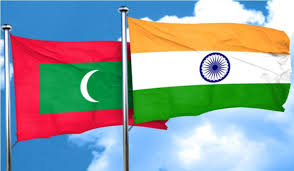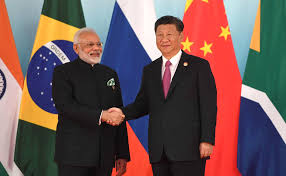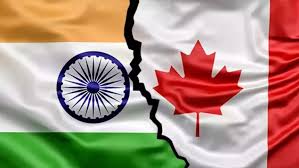Maldivian President Mohammed Muizzu, who campaigned on an “India out” platform, has now taken a drastically different tone, expressing confidence that India will assist his country as it faces a looming economic crisis. His five-day visit to India, which begins Sunday, aims to secure a significant financial bailout worth hundreds of millions of dollars.
The Maldives’ foreign exchange reserves have plummeted to a mere $440 million, barely enough to cover one-and-a-half months of imports. As the island nation stares down the possibility of a debt default, Muizzu told the BBC in an email interview that India is aware of the Maldives’ dire fiscal situation and will step in as one of its “biggest development partners” to ease the burden.
“India is fully cognizant of our fiscal situation, and as one of our biggest development partners, will always be ready to ease our burden, find better alternatives and solutions to the challenges we face,” Muizzu said, signaling a clear pivot from the anti-India rhetoric that defined his election campaign just a year ago.
A Strategic U-Turn?
During his campaign, Muizzu had called for the withdrawal of Indian troops stationed in the Maldives as part of an “India out” policy, a stance that resonated with nationalist sentiments in the island nation. This position garnered widespread attention and was seen as part of a broader effort to realign the Maldives’ foreign relations, moving closer to China and Turkey.
However, Muizzu now appears to be softening his stance toward India, though he stopped short of addressing his previous anti-India campaign directly. “We are confident that any differences can be addressed through open dialogue and mutual understanding,” he told the BBC.
While Muizzu is keen to assert that the Maldives is not facing an immediate sovereign debt default, the country’s financial outlook remains grim. Last month, credit rating agency Moody’s downgraded the Maldives, citing significantly increased risks of default. With external debt payments amounting to $600 million in 2025 and more than $1 billion in 2026, the Maldives will need substantial financial support to avert a crisis.
Despite this, Muizzu has ruled out joining the International Monetary Fund (IMF) program, stating that the country would pursue a “home-grown agenda.” This has raised questions about the viability of such an approach, especially given the growing debt obligations and the lack of substantial financial aid from China, which had been seen as a potential alternative to India.
India’s Role: A Lifeline for the Maldives?
India has already extended significant support to the Maldives, including a $1.4 billion package for infrastructure and development projects. However, the Maldives’ decision to turn first to China and Turkey after Muizzu’s election last year strained the historically close relationship between Male and Delhi. Muizzu’s visit to China in January, bypassing the usual diplomatic tradition of visiting India first, was widely interpreted as a snub.
The situation was further complicated when Maldivian officials made derogatory comments about Indian Prime Minister Narendra Modi, and Muizzu demanded the withdrawal of approximately 80 Indian troops stationed in the Maldives to maintain and operate reconnaissance helicopters and aircraft donated by India. Although the two nations eventually reached a compromise by replacing Indian soldiers with civilian technical staff, the incident highlighted the tensions that have simmered in recent months.
Now, with the Maldives in a precarious financial situation, Muizzu’s visit to India is viewed as a critical opportunity to mend ties. The Maldivian leader is expected to request more financial assistance from Delhi during his visit, further highlighting the country’s reliance on India as a key economic partner.
According to Maldivian analyst Azim Zahir, Muizzu’s visit is “a realisation of how dependent the Maldives is on India, a dependency that no other country will find easy to fill.” Despite the president’s efforts to forge closer ties with China, financial aid from Beijing has not materialized in the manner Muizzu may have hoped.
Implications for India-Maldives Relations and the Wider Region
Muizzu’s overtures to India come at a time of growing anti-India sentiment in the Maldives and other neighboring countries like Bangladesh. The Maldives’ move to re-engage with India after a period of friction raises an important question: Has the Maldivian leadership realized the limitations of pursuing an anti-India stance?
This development could have broader implications for India’s foreign policy, particularly in its relations with other South Asian countries, like Bangladesh, where anti-India sentiment has often surfaced in political rhetoric. Bangladesh, like the Maldives, has strategic and economic ties with both India and China, and anti-India sentiments have periodically influenced the country’s political landscape.
If the Maldives, after its brush with anti-India rhetoric, ultimately turns to India for financial salvation, this could serve as a cautionary tale for other countries in the region. The economic challenges faced by smaller nations like the Maldives, coupled with the strategic rivalry between India and China, create a delicate balancing act for these countries.
The Maldives’ realization that it cannot entirely sideline India could prompt other nations like Bangladesh to reassess the costs of anti-India rhetoric. With Bangladesh also facing significant economic and political pressures, including upcoming elections and the increasing influence of China in the region, the developments in Male could resonate in Dhaka.
While it remains to be seen whether Muizzu’s shift will mark a long-term recalibration of Maldives-India relations, the potential lessons for India’s neighbors are clear: Maintaining balanced relations with regional powers is not only about political posturing but also about economic survival.
Muizzu’s visit to India signifies a critical moment in the Maldives’ foreign relations, with both immediate and long-term consequences for the region. As the Maldives navigates its economic crisis, the implications for India’s role as a stabilizing force in South Asia will be watched closely—not just in Male, but in other regional capitals as well.




